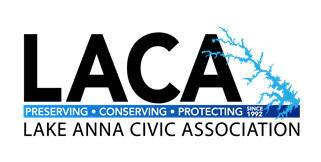By Sue Biondi – October 2024
No doubt you have heard the expression “they mix like oil and water.” That expression is used when two things are incompatible. The expression couldn’t express more the incompatibility of water and electricity. This article is a must read for all LACA members and all who frequent the lake, whether on or off water.
On July 4, 2024, at Smith Mountain Lake, an adult male jumped into the water at a private home dock and immediately showed signs of struggling. His two friends jumped in the water to help him, and immediately felt like they were being shocked. They managed to pull the victim out of the water and began CPR until medics arrived. The person succumbed to the event. Information about this tragedy can be found on You Tube and WJLA ABC7 News.
There are no visible signs of electricity in the water. If someone enters electrified water, it can cause paralysis, leading to the inability to swim or tread water. Electricity passes through the body and may cause instant death. This is especially hazardous in fresh water (a lake) due to lower water conductivity. Many drowning deaths are incorrectly classified as a “drowning,” but are electric shock deaths. A boat lift with faulty wiring that connects to shore power can be a source of electrified water, as well as improperly wired pumps, boats or lighting, improperly grounded wires, or stray current in the ground. Anything requiring electricity around the water should be installed by a certified electrician.
Electric service around docks and marinas should include Ground Fault Circuit Interrupters (GFCI) that are compliant with the National Electric Code (NEC) 2011 and Marine Ground Fault Protection Article 555-3. These GFCIs should be tested at least monthly. Only use extension cords that are specifically intended for marine use and are in good condition. NEVER use household cords near water. Become familiar with the location of power breakers on your dock and in the house so power can be shut off quickly.  If you feel a tingle while swimming, swim away from the dock and do not use a metal ladder to exit the water. The water should be inspected and tested using a qualified electrician.
If you feel a tingle while swimming, swim away from the dock and do not use a metal ladder to exit the water. The water should be inspected and tested using a qualified electrician.
Another hazard to consider is CARBON MONOXIDE (CO). Poorly tuned boat engines produce CO. Proper ventilation for engine and generator exhaust vents must be clear and pipes should be inspected for leaks. Symptoms of CO poisoning include headache, fatigue, confusion, dizziness, nausea or seizures, all like symptoms of seasickness. Get a person into fresh air and call 911 for assistance. DO NOT swim near a boat’s exhaust vents. DO NOT sit on a boat platform while the boat is idling.
This article is intended to promote education and boating safety. For more information, sources include www.nfpa.org/education and the Electrical Safety Foundation International (703-841-3229.
sue.biondi@lakeannavirginia.org
